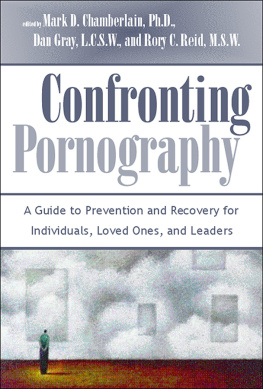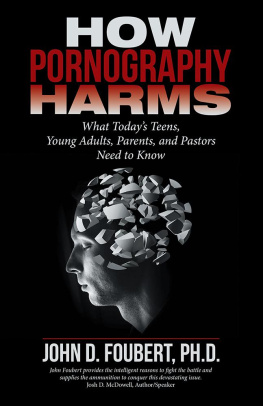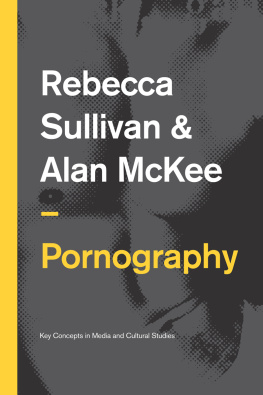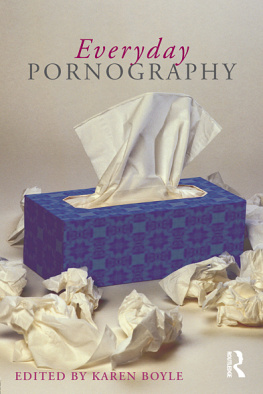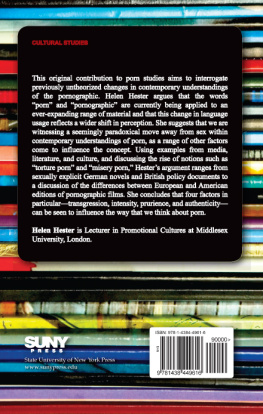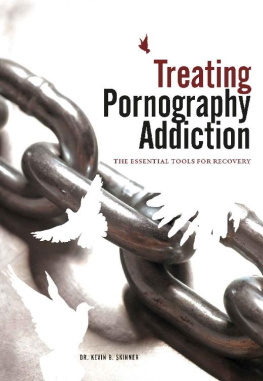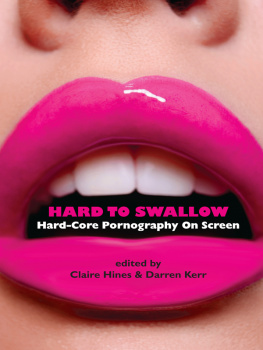
Pornography, Indigeneity and Neocolonialism
Pornography, Indigeneity and Neocolonialism examines how pornography operates as a representational system that authenticates settler colonies, focusing on American and Australian examples to reveal how pornography encodes whiteness, pleasure, colonisation and Indigeneity.
This is the first text to use decolonial and queer theory to examine the role of pornography in America and Australia, as part of a network of neocolonial strategies that naturalise occupation. It is also the first study to focus on Indigenous people in pornography, providing a framework for understanding explicit representations of First Nations peoples. Pornography, Indigeneity and Neocolonialism defines the characteristics of heterosexual pornography in settler colonies, exposing how the landscape is presented as both exotic and domestic a land of taboo pleasures that is tamed and occupied by and through white bodies. Examining the absence of Indigenous porn actors and arguing against the hypervisual fetishising of Black bodies that dominates racialised porn discourse, the book places this absence within the context of legal, political and military neocolonial Indigenous elimination strategies.
This book will be of key interest to researchers and students studying porn studies, media and film studies, critical race studies and whiteness studies.
Tim Gregory is a Lecturer in Art at UNSW, Sydney. He is an artist and writer who researches the intersection of pornography, colonialism, art and politics. He is interested in experimental art and writing that critiques heterosexual culture. Tim has exhibited work at the Museum of Contemporary Art (Sydney), the Art Gallery of NSW and the Venice Arsenale. He has been selected for the Arte Laguna Prize, 8th Biennial of Contemporary Textile Art and The Blake Prize. He has published in Porn Studies, Sexualities, CSR and the Space and Culture Journal.
Focus on Global Gender and Sexuality
Trans Dilemmas
Stephen Kerry
Gender, Sport and the Role of the Alter Ego in Roller Derby
Colleen E. Arendt
The Poetry of Arab Women from the Pre-Islamic Age to Andalusia
Wessam Elmeligi
Interviews with Mexican Women
We Dont Talk About Feminism Here
Carlos M. Coria-Sanchez
Pornography, Indigeneity and Neocolonialism
Tim Gregory
www.routledge.com/Focus-on-Global-Gender-and-Sexuality/book-series/FGGS
Pornography, Indigeneity and Neocolonialism
Tim Gregory
First published 2020
by Routledge
2 Park Square, Milton Park, Abingdon, Oxon OX14 4RN
and by Routledge
52 Vanderbilt Avenue, New York, NY 10017
Routledge is an imprint of the Taylor & Francis Group, an informa business
2020 Tim Gregory
The right of Tim Gregory to be identified as author of this work has been asserted by him in accordance with sections 77 and 78 of the Copyright, Designs and Patents Act 1988.
All rights reserved. No part of this book may be reprinted or reproduced or utilised in any form or by any electronic, mechanical, or other means, now known or hereafter invented, including photocopying and recording, or in any information storage or retrieval system, without permission in writing from the publishers.
Trademark notice: Product or corporate names may be trademarks or registered trademarks, and are used only for identification and explanation without intent to infringe.
British Library Cataloguing-in-Publication Data
A catalogue record for this book is available from the British Library
Library of Congress Cataloging-in-Publication Data
Names: Gregory, Tim (Lecturer in art), author.
Title: Pornography, indigeneity and neocolonialism / Tim Gregory.
Description: Abingdon, Oxon ; New York, NY : Routledge, 2020. | Series: Focus on global gender and sexuality | Includes bibliographical references and index. Identifiers: LCCN 2019055707 (print) | LCCN 2019055708 (ebook) | ISBN 9780367193300 (hbk) | ISBN 9780429201776 (ebk) | ISBN 9780429510441 (Adobe PDF) | ISBN 9780429513879 (epub) | ISBN 9780429517303 (mobi)
Subjects: LCSH: Pornography. | Indigenous peoples. | Sex.
Classification: LCC HQ471 .G737 2020 (print) | LCC HQ471 (ebook) | DDC 306/.77/1dc23
LC record available at https://lccn.loc.gov/2019055707
LC ebook record available at https://lccn.loc.gov/2019055708
ISBN: 978-0-367-19330-0 (hbk)
ISBN: 978-0-429-20177-6 (ebk)
Typeset in Sabon
by Wearset Ltd, Boldon, Tyne and Wear
Contents
I acknowledge the Bidjigal and Gadigal peoples of the Eora nation as the traditional custodians of the land on which I live and work. I pay my respects to Elders past and present and extend this respect to all Aboriginal and Torres Strait Islander people. Sovereignty was never ceded. I also want to acknowledge that acknowledgement is not enough.
An earlier version of ). It has been revised and updated for publication here, with permission from the original publisher.
I want to specifically thank my loyal dog pack, pup (Astrid), new dog (Brooks), old dog (Dave) and big dog (Uros). They have provided me with the support I needed to realise this project. This text is very much a pack effort.
Finally, I wish to acknowledge the students and tutors in the courses I teach at UNSW Art & Design, especially Pornography, Art and Politics and Post-Pornographic Bodies. Many of the ideas in this text have emerged from these students and tutors dedication to radical politics.
Pornography is the most invisible yet abundant representational mode. Until the 1990s it was largely ignored as a system worthy of investigation by academics, sociologists and cultural producers. While popular cultural forms like television, radio, advertising and film have long been assessed for their impact on forming personal, communal and national identity, until recently explicit displays of sex have escaped such attention. Pornography has not only evaded critical investigation, but it is characterised by its illusiveness and exceptionality; that is, it is considered more indexical than other genres and hence primarily affective rather than symbolic or textural. The viewer singularly masturbates to pornography, they do not read, synthesise, refer, recognise, share, relate or contextualise the imagery. This means that pornography is not seen alongside or within other genres of representation. The exceptional status of pornography means it appears immune to strategies applied to other representational systems. Porn is not considered to have a message or a productive utility, and porn is not deployed nor calculated for political or social gain. It simply designates sexual preference, or more often perversion. Its economics is one of exploitation rather than accumulation. While the art historian Kenneth Clark (1972) connected pornography to propaganda, he did so in order to dismiss it as the lowest form of imagery, rather than to suggest that pornography is deliberately used to manipulate public opinion. However, this definition of porn is a product of porns own mythmaking, perpetuated by the fear and desire that the mere mention of it inspires. This myth disguises porns larger operation and integration across representational systems that structure nationalism and maintain settler states.


